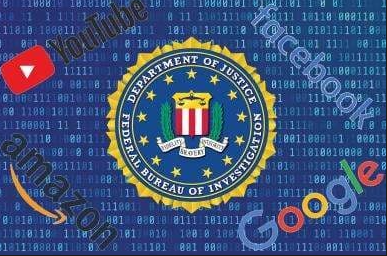
Outside the Supreme Court Monday, a crowd of several hundred, some clad in shirts reading “Speak your mind, stand your ground” and others hoisting signs with messages like “Fauci lied,” rallied to reclaim the First Amendment from the federal speech police.
Inside the court, the feds rallied to retain the power to silence those speech advocates — and tens of millions more who might dare dissent from government orthodoxy — by cajoling, coercing and colluding with social-media platforms to censor them.
Disturbingly, the Supreme Court might have bought the government’s argument.
{snip}
The court heard oral arguments Monday in the landmark Murthy v. Missouri case (formerly Missouri v. Biden).
Plaintiffs — including the states of Missouri and Louisiana, eminent doctors, a conservative website and health activist — demonstrated that by pressuring and partnering with Big Tech platforms to suppress disfavored speech on matters ranging from The Post’s Hunter Biden laptop story to election processes and outcomes to COVID-vaccine efficacy, federal authorities engaged in what a Louisiana district judge called “arguably” the “most massive attack against free speech” in US history.
The censorship dragnet captured millions of posts across a slew of platforms under often arbitrary and capricious, government-driven “content moderation” policies.
By constantly hectoring and holding the threat of adverse action over the heads of the platforms to compel them to quash speech the government disfavored — or else — the feds effectively made the platforms its deputized speech police, as both the district court and the Fifth Circuit Court of Appeals agreed.
{snip}
The district court in an Independence Day ruling disarmed the speech police while the case plays out via a preliminary injunction prohibiting the feds from coordinating with social-media platforms to censor.
When the feds appealed, the Fifth Circuit modified but kept the freeze in place.
So the defendants, including the Biden White House, FBI and surgeon general’s office, took their case to the Supreme Court.
The Supremes took up the technical question of standing and two primary substantive questions: whether the feds violated the First Amendment by proxy and whether the injunction’s “terms and breadth” were appropriate.
The feds, represented by Deputy Solicitor General Brian Fletcher, and the plaintiffs, repped by Louisiana Solicitor General Benjamin Aguiñaga, parried with each other and the justices over 1) when government badgering and browbeating cross the line from persuasion to coercion and if that’s the standard for determining whether the government violated the First Amendment by proxy; 2) when, on what topics and/or in what manner the government could call on social-media firms to suppress speech; 3) to what extent government words and threats could be traced to specific instances of censorship; 4) what the practical consequences would be depending on how the court rules; and 5) how to remedy the alleged harms.
{snip}
It lamented it would be subjected to “sprawling audits” if the standards in the case held and it is subjected to oversight and accountability when it threatens our most basic rights.
Our ruling regime, that is, played the victim.
The court’s three most liberal justices, Sonia Sotomayor, Elena Kagan and Ketanji Brown Jackson, unsurprisingly looked to concur with the feds’ perverse view in questioning.
By contrast, Justices Clarence Thomas, Samuel Alito and Neil Gorsuch did not seem favorably disposed to the government’s case.
But Chief Justice John Roberts and Justices Brett Kavanaugh and Amy Coney Barrett were more deferential to it.
{snip}
Roberts, for example, questioned whether the government was monolithic, insinuating multiple agencies might have different views, diluting its coercive ability.
He asked if a hypothetical “We encourage you to take it down” message from a government official constitutes coercion.
Kavanaugh alluded multiple times to the idea government frequently challenges traditional media the same way it does social-media companies — to sit on or correct stories — without it rising to the level of a First Amendment case.
{snip}
Witnessing oral arguments from inside the room, I thought Aguiñaga was put on his back foot, conceding that if the court took issue with the injunction’s terms or breadth, the plaintiffs would accept narrow tailoring but pleading it “has to say something in our favor on the merits.”
If the court does not, we can kiss what remains of our First Amendment goodbye.
Benjamin Weingarten is editor at large at RealClearInvestigations.
* Original Article:
https://nypost.com/2024/03/18/opinion/the-supreme-court-hints-it-may-give-away-our-free-speech-rights-in-social-media-censorship-case/amp/